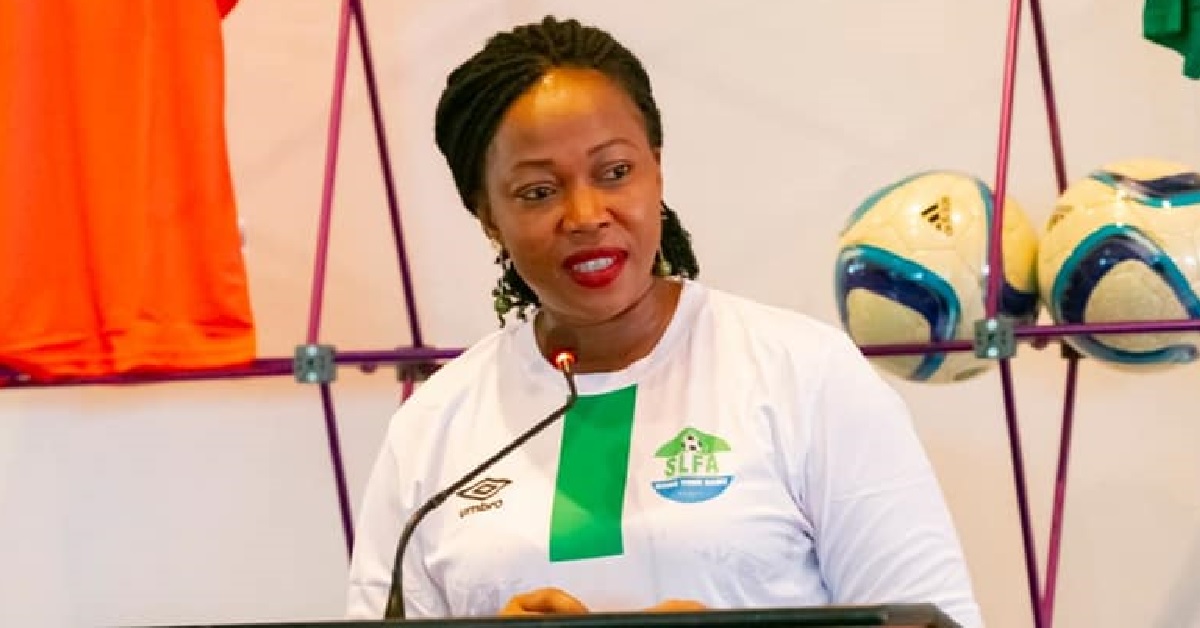In commemoration of World Aids Day, Sierra Leone’s First Lady Fatima Maada Bio, on Wednesday 1st December 2021, at the Youyi Building in Freetown, has said the world’s biggest pandemic today is inequality.
The theme for this year’s commemoration is “End Inequality, End Aids, End Pandemic.”
Awoko reports that The First Lady said “People living with HIV are people just like anyone of us, and it may not be their fault that they contracted the disease. So, if one cannot support them, one must not malign them.”
She said as the world celebrates World Aids Day, there is need for people to reflect on those who have lost their lives to HIV and Aids, emphasizing the need to support, especially women living with Aids, adding that they don’t need validation, but support from men.
She also spoke highly against rape which she said is linked to the spate of HIV in the country, calling for the need for girls to be educated, for according to her; it is only when these girls are educated that they will understand what is right and wrong.
Madame Bio mentioned that attention should also be paid to cervical cancer which she said is killing people in the country. She urged young girls to go for the HPV vaccine in order to protect themselves from contracting cervical cancer.
Director General, National Aids Secretariat (NAS), Abdul Rahman Sesay, said HIV and Aids is a multi-sectoral issue, adding that NAS cannot do it alone, hence the need for collaboration. He spoke highly of the need for check up in a bid for one to know one’s status and start treatment.
Sesay said the theme for this year’s commemoration resonates with the Sierra Leonean people. He therefore urged that the theme be brought to all institutions across the country.
One set of people that many believed should be targeted if the world is to end Aids in 2030, is what health experts referred to as key population (people living with Aids/commercial sex workers). A representative from their group, said World Aids Day is a day that people should show support to those living with the disease.
She also spoke highly against inequality which she said is a barrier for people living with the disease to access health care facilities. “To end Aids in 2030, we need to first of all end inequality,” she maintained.
She urged authorities concerned to invest in community led approaches to beat the disease and end inequality and discrimination. “Communities must be empowered so that they can talk about what affects them and provide solution to it,” she furthered.
Minister of Health and Sanitation, Dr. Austin Demby said the idea among people that when a person tests positive for HIV and Aids that person is on a death sentence should now be a thing of the past, noting that there is now a drug that will remove the HIV virus from an infected person’s body.
While he opined that people are afraid of getting tested for HIV and Aids, he urged all and sundry to get tested for the disease and go for treatment, for he said people living with HIV and Aids can still live long.
He also said that the World has the formula to kick out HIV and Aids which has claimed 37 million lives across the world. “We can be able to kick out Aids if we work together and avoid stigmatization and discrimination,” he said.
UN Resident Coordinator in Sierra Leone, Babatunde A Ahonsi, said the world is off track from delivering on the shared commitment to end Aids by 2030 because of what he described as structural inequalities that obstruct proven solutions to HIV prevention and treatment.
“Structural inequalities have put women, girls, and other marginalized population groups at greater risk of HIV infections. The epidemic in Sierra Leone is feminized and concentrated among key populations it still remains low at 1.7% prevalence among women aged 15 years and the rate among men is 2.2% and 1.1% for men,” he added.
Similarly, he said, young girls aged 15-24 years are three times more likely to be infected at 1.5% compared to boys of the same aged 0.5%. “Marginalization, stigma, and discrimination have resulted in a disproportionately high HIV prevalence among key and vulnerable population groups with prevalence ranging from 6.8% among sex workers and 15% among transgender,” he disclosed.
He recommended that financial barriers to health should be dismantled, whereas, there should be an increase in investment in vital public services to achieve universal health coverage for everyone, everywhere. This he said will ensure equal access to HIV prevention, testing, treatment and care, including Covid-19 vaccinations and services.











